Five city tea driedWucheng Dried Tea
Wucheng Dried Tea, a specialty of Xiuning County, Anhui Province, is a national geographical indication product.
Wucheng Tea is a delicious food for both old and young people. It is dry and salty, pure and delicious, flexible and mellow, and rich in nutrition.
In March 2010, Wucheng Tea Dry was awarded the title of National Geographic Indications Protection Product.
Wucheng tea is red-brown in dry color, uniform in color, with oil moistening taste, moderate salty and sweet taste, strong aroma, fine texture, continuous folding, soft, strong and elastic. The dried tea is refined from more than ten natural materials such as high quality soybean and licorice. And the color of sauce red, chewing long, lasting aftertaste, toughness, folding and other characteristics. In addition to rich vegetable protein, it also contains 18 kinds of amino acids needed by human body, as well as more than ten trace elements such as calcium, magnesium, molybdenum, manganese, selenium, strontium and copper.
Wucheng Tea Dry, a traditional specialty of Huizhou, was founded in the late Southern Song Dynasty during the period of Lizong. Its technology matured in the Yuan Dynasty and flourished in the Qing Dynasty.
Xiuning County is located in the mountainous area of southern Anhui Province. It has a subtropical monsoon climate with distinct seasons and abundant rainfall. The average annual temperature is 15.5-16.4 C, and the precipitation is between 1400-1700 mm. Ratshui and Hengjiang valleys present the lower terrain Hetao Plain, and the river system in the territory belongs to Qiantang River and Yangtze River valleys. There are 237 large and small rivers in the territory, which merge into Xin'an River, Suijiang River, Qujiang River and Yanjiang River. The total length of the river is about 910 kilometers, the flow of the river is 2.242 billion cubic meters, and the theoretical reserves of water resources are 154 million kilowatts. The main river rate water and Hengjiang River run across the whole territory from west to East in the South and north of the county boundary respectively. The total area of the river basin is 1947 square kilometers, which is suitable for legume cultivation.
By the end of 2017, there were nearly 80 tea dried processing households in Wucheng County, about 290 people engaged in tofu dried processing, and about 15,000 Jin of soybeans were processed every day. The output of tea dried in this village accounted for 80% of the whole town and more than 60% of the whole city. A large number of tea dried products were exported to Jiangsu, Zhejiang, Shanghai, Hefei and Wuhu.
In March 2010, Wucheng Tea Dry was awarded the title of National Geographic Indications Protection Product.
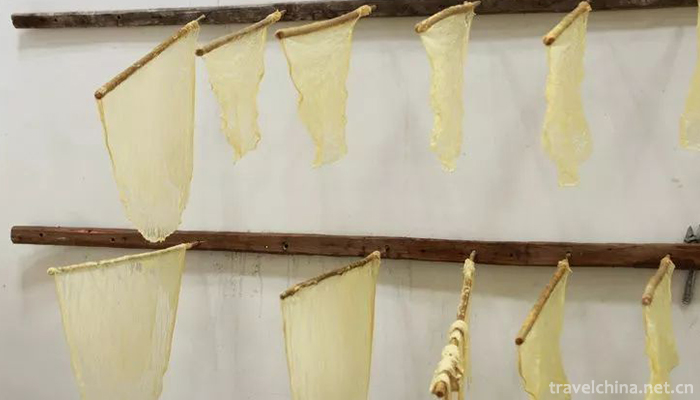
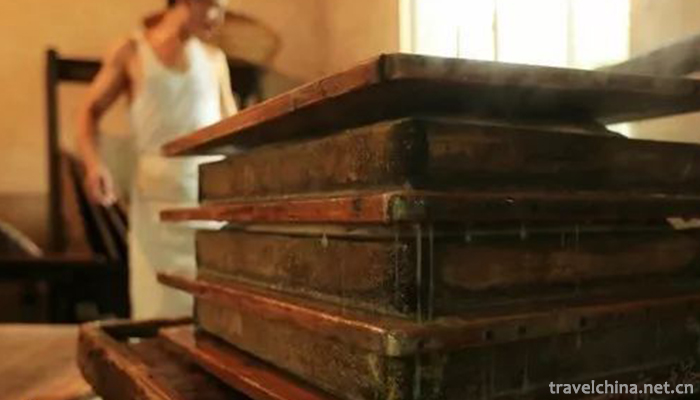
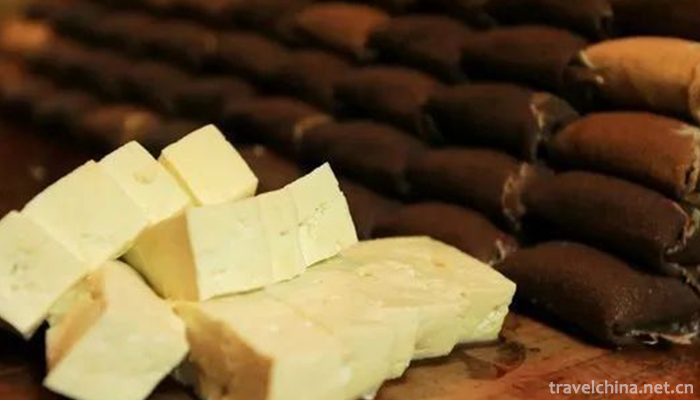
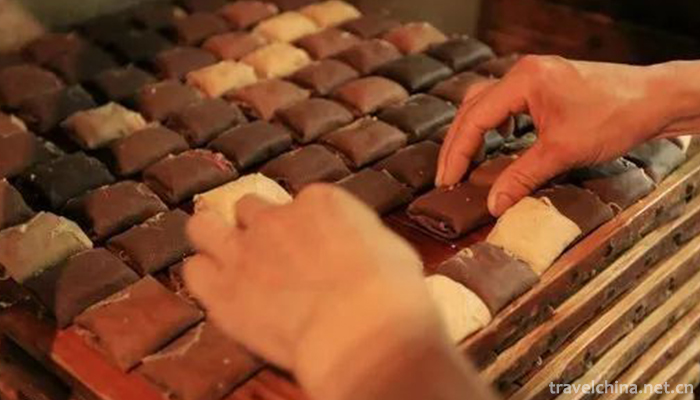
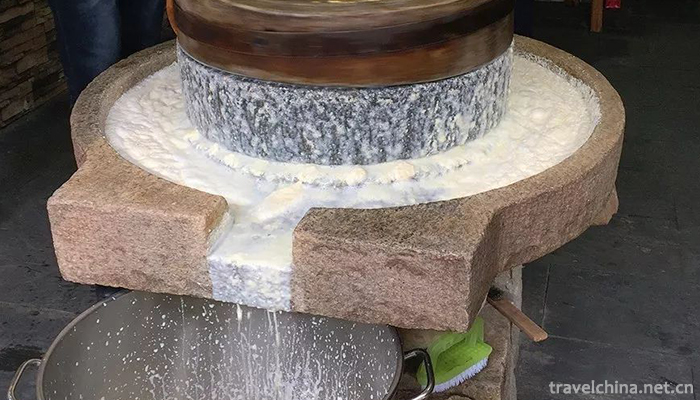
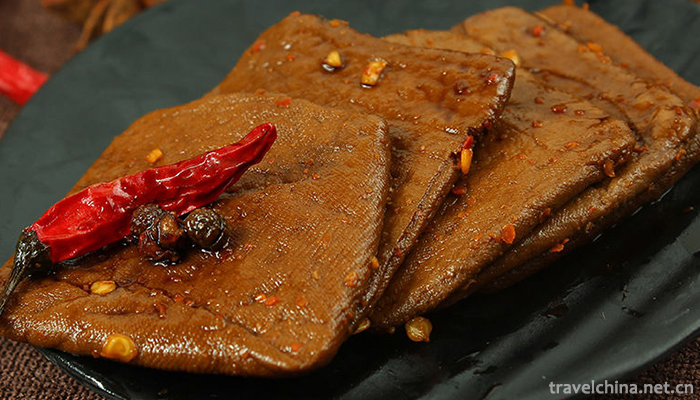
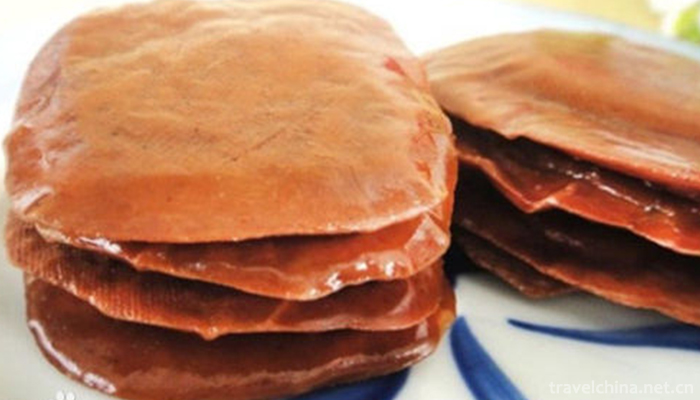
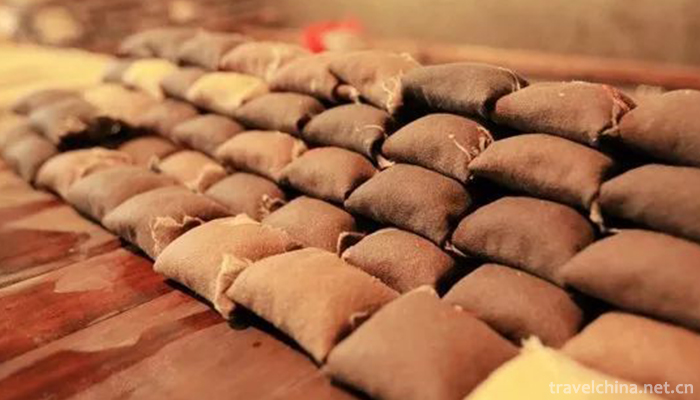
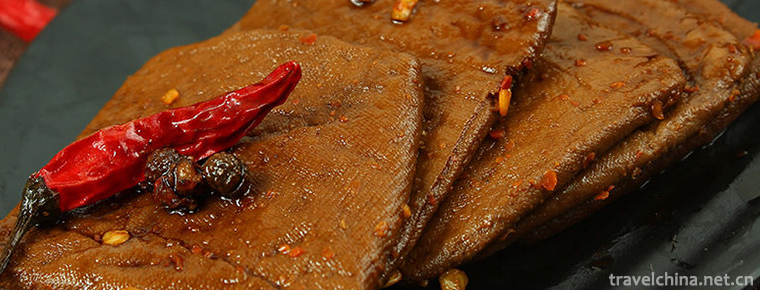
-
2.Steamed Lotus Root Stuffed with Glutinous Rice
Osmanthus sweet-scented glutinous rice lotus root, also known as honey juice glutinous rice lotus root, is one of the characteristics of the traditional famous spots in the south of the Yangtze River.
Time 2018-10-27 -
3.Kaifeng soup dumplings
Kaifeng filling soup bag is one of the famous foods in Kaifeng because of its unique flavor. The soup is thin and white like Jingdezhen ceramics. It has a transparent feeling
Time 2018-11-26 -
4.Sanxingdui Museum
The Sanxingdui Museum was founded in August 1992 and opened in October 1997. It is located in the northeast corner of Sanxingdui Site, a national key cultural relic protection unit.
Time 2018-12-18 -
5.Xumishan Grottoes
Xumishan Grottoes, located 55 kilometers northwest of Guyuan City, Ningxia, is located in the north of Liupan Mountain. It is the only way to the east of the ancient "Silk Road" and one of t
Time 2019-02-26 -
6.Luoyang Peony Festival
The Chinese Luoyang Peony Culture Festival, formerly known as the Luoyang Peony Flower Festival, has been selected into the national intangible cultural heritage list since 1983. In November 2010, it
Time 2019-05-15 -
7.Puxian Ten Sounds and Eight Musics
Puxian Ten-tone Eight Music is not only the traditional folk art folk rap music in Putian area, but also the instrumental music. Ten tones, also known as ten times, are a comprehensive art of instrume
Time 2019-06-09 -
8.Jumping Cao Gai
Caogai jumping is prevalent in Baima Tibetan area of Pingwu and Nanping counties. It is held on the sixth day of the first month of the lunar calendar every year. Cao Gai is a Baima Tibetan phonetic t
Time 2019-06-21 -
9.Recitative
Recitation is a local traditional music form in Changzhou City, Jiangsu Province, which has a high reputation at home and abroad. The art of reciting belongs to "minority culture", which is
Time 2019-07-13 -
10.Legend of Yin Jifu
The "Yin Jifu Legend" which was listed as the first batch of intangible cultural heritage in Hubei Province, made a sensation forum about "Chinese poetry ancestor, Taishi Yin Jifu of th
Time 2019-07-13 -
11.Zhoushan gongs and drums
Zhoushan gongs and drums are the representatives of traditional folk art in Zhoushan City, Zhejiang Province. They are based on gongs, drums, cymbals and clappers, with silk bamboo, magnificent sound
Time 2019-08-10 -
12.Leshan climate
Leshan has formed a variety of climate types under specific geographical conditions. Because the region is located near 29 ° n, the city belongs to the middle subtropical climate zone, with the characteristics of four distinct seasons, abundant rainfall, water
Time 2020-12-17